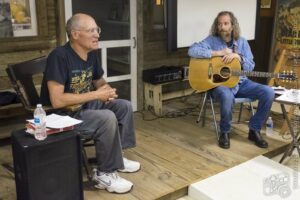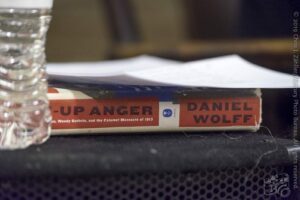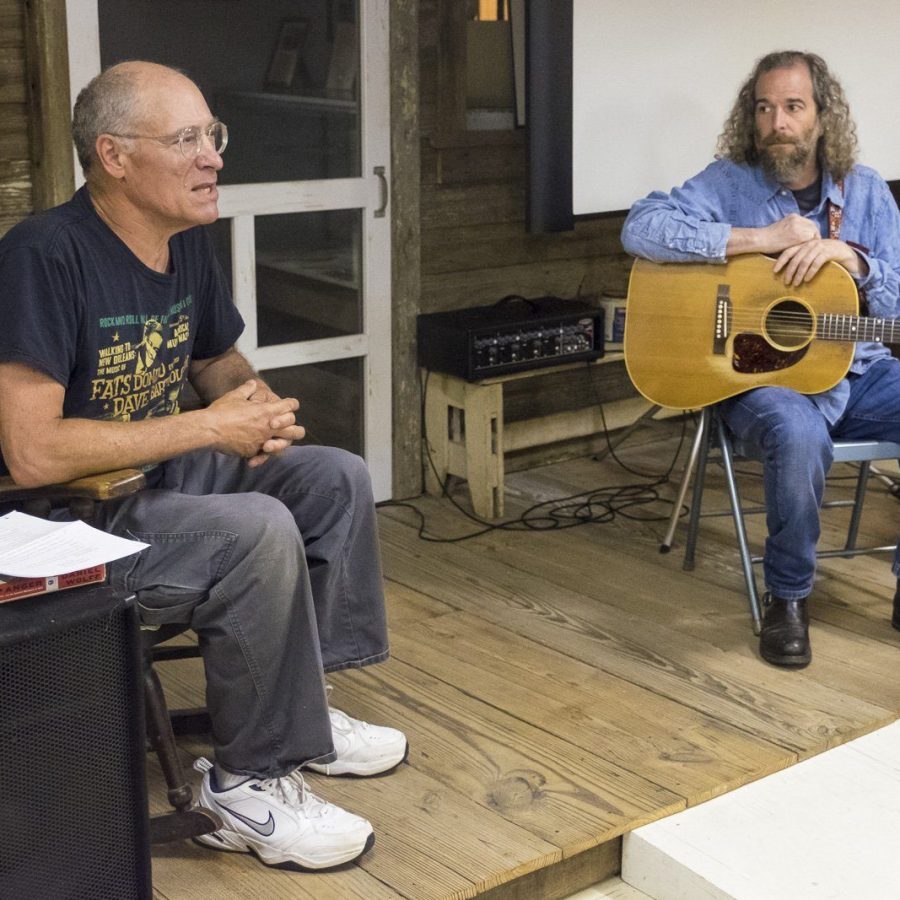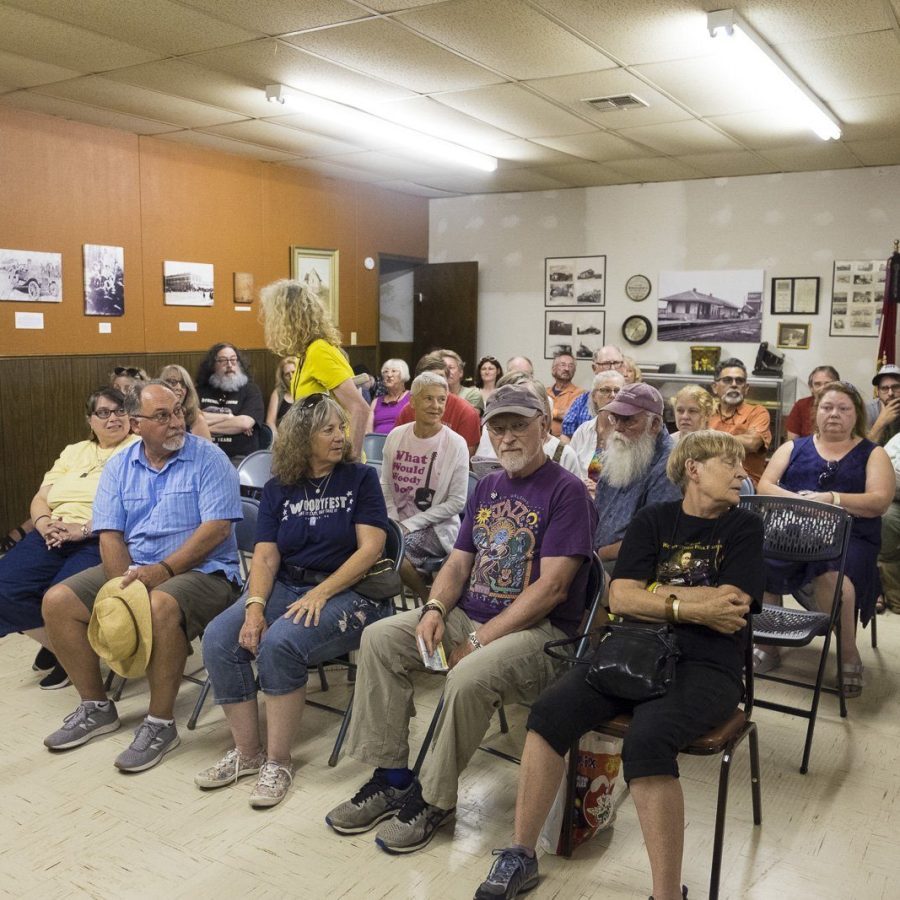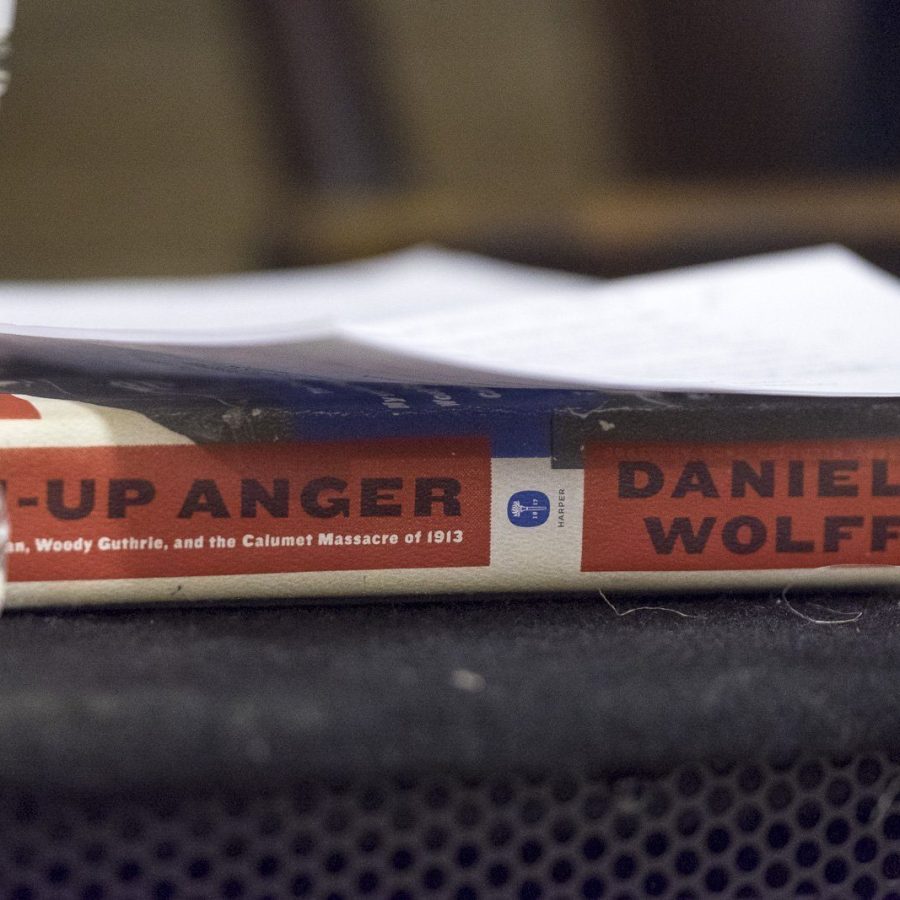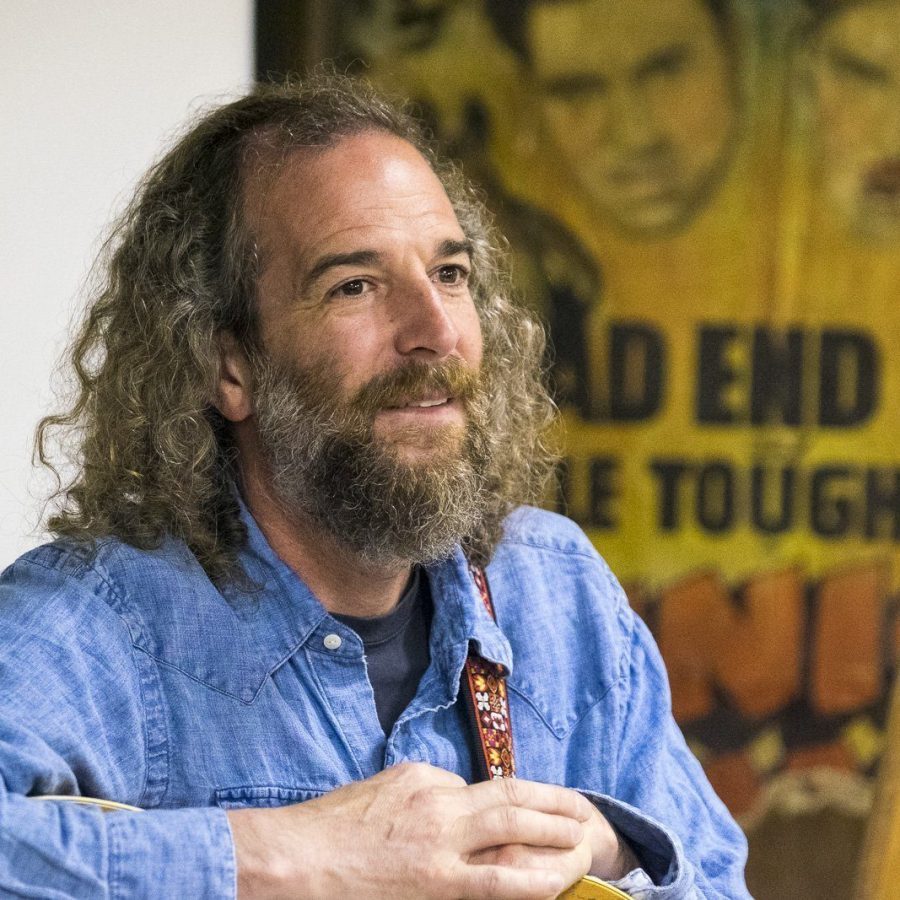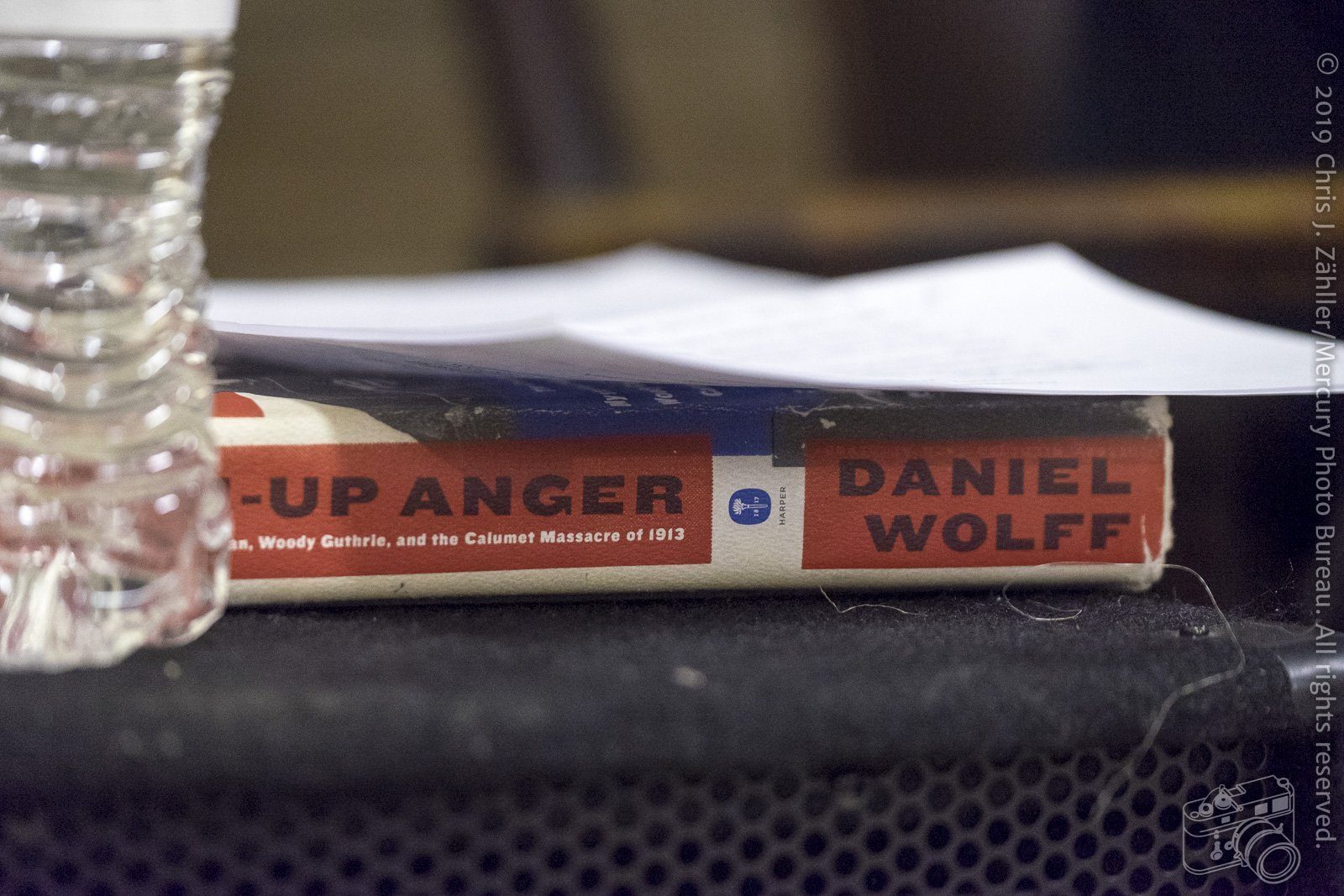
Woodyfest 2019: Grown Up Anger with Author Daniel Wolff
Calumet, Guthrie, & Dylan
Calumet, Guthrie, & Dylan
As part of Woodyfest’s continuing educational outreach, [Sidenote: This is the thirteenth post in our coverage of the twenty-second annual Woody Guthrie Folk Festival. We’ll be alternating our reporting with essays and photo galleries from the from the sixteenth festival in 2013 and the seventeenth festival in 2014, so check in often for a mix of old and new Woodyfest goodness.] author Daniel Wolff gave a short talk about his book, Grown Up Anger: The Connected Mysteries of Bob Dylan, Woody Guthrie, and the Calumet Massacre of 1913, during the last year’s festival.
In alternating chapters, the book weaves biographies of the two men with the story of the Calumet Massacre. The latter was the subject of a lesser-known Guthrie song, “1913 Massacre,” and tells the story of a panic that broke out at a Christmas party given for striking miners in Calumet, Michagan on Christmas Eve, 1913. Eyewitnesses agree that a stranger ran in and yelled Fire!
(there was no fire), but it’s not known who the man was or what was his motivation. In the subsequent panic, seventy-three people, including sixty-two children, were crushed to death in a pile-up near the door.
Guthrie’s song reflects the common belief that the stranger was an agent or sympathizer of the mine owners, and that company sympathizers held the door, located at the bottom of a narrow staircase, tightly shut.
In truth, the man’s identity is unknown and no proof has ever been found to support the idea that the panic was engineered by company sympathizers, or indeed, if any such were even present. No one knows why he entered the space and shouted Fire!
For this reason Wolff characterizes the incident as a mystery.
Over the course of the book, Wolff traces the evolution of folk music from a genre that records specific incidents and particular grievances to one that addresses global issues. When Guthrie wrote songs like “Deportee,” he may have been commenting on the larger issue of how we treat migrant workers, but he was referring to specific incidents, people, and places. By the time Dylan made the switch to electric instruments, he was writing general critiques of a whole rotten system. Folk music had gone from lamenting the murder of “The Knoxville Girl” to documenting unbounded angst over the H-Bomb.
Festival regular Chris Buhalis provided musical examples for Wolff’s lecture. Grown Up Anger was published by Harper in 2017 and is available from all of the usual sources.
Gallery
Gallery
